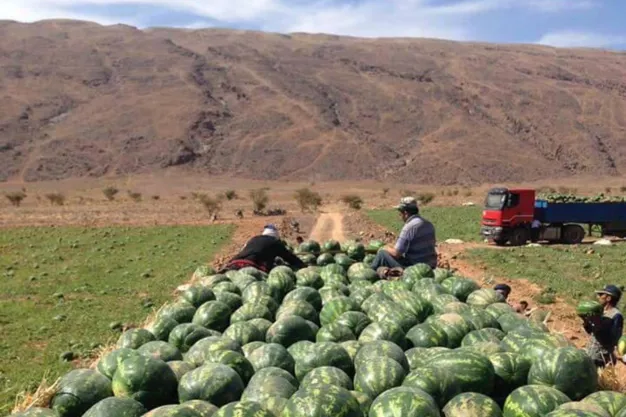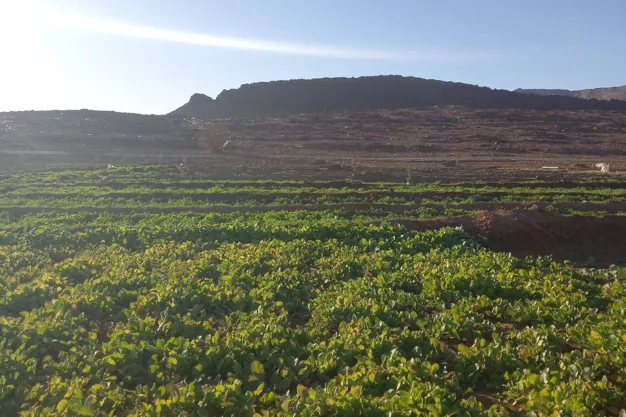The Moroccan watermelon campaign is hit by a sharp decline in volumes this year. Production in several regions of the country has been limited or even banned this year. This is the case in the province of Tata, where watermelon production has been suspended altogether.
Moulay Ahmed Errahmani, a farmer based in the province of Tata, explains, "Morocco is experiencing severe water stress, and our region is among the worst affected. Watermelon production is therefore naturally affected. This year, there won't be any watermelons coming from our region. That represents over 110,000 tonnes withdrawn from the market."

Watermelon production on a commercial scale is recent in the region, says Errahmani. "It started around 2012 with a few producers and a small volume. The product found a very good reception on the national and international markets, and the industry grew until it reached its peak of 4,200 hectares in 2020. But climatic conditions and the constant drought the country is experiencing have reset the meters to nil."
"From 2020, local authorities announced and then took progressive restrictive measures, piloting the transition to alternative crops. A clear ban was then imposed this season. The local economy has therefore suffered a severe blow, but we are aware that this ban is in the interests of the region's citizens and is dictated by the reality of the climatic situation facing the country. While it has rained recently in the north and west of the country, our region has not seen a single drop of rain. So, we have to adapt in order to give the water table a bit of a break."

Growers have therefore converted their acreage to other crops. Errahmani lists them: "There is currently a fairly varied commercial production. There are tomatoes, onions, zucchini, and other vegetables. For my part, I've switched to spring onion production. The results are satisfactory, with good yields and good demand. This season, the spring onion harvest is scheduled for June, with the prospect of exporting them for the first time."
For more information:
Moulay Ahmed Errahmani
Alhibat Négoce
Tel: +212 770-334313
Email: moulayahmed068@gmail.com
